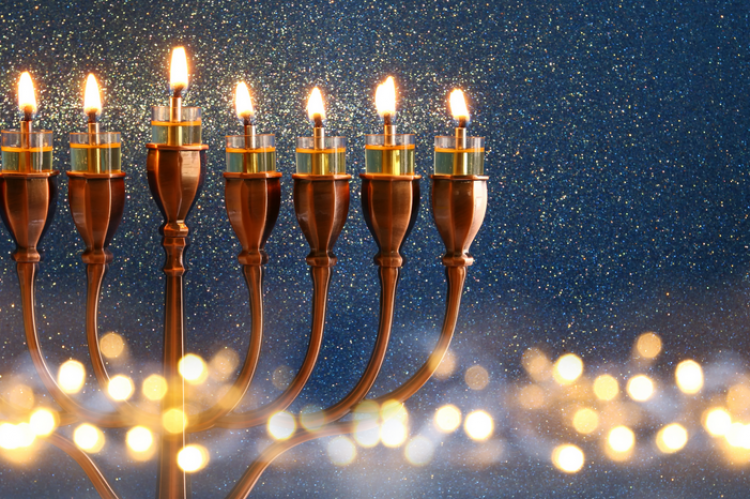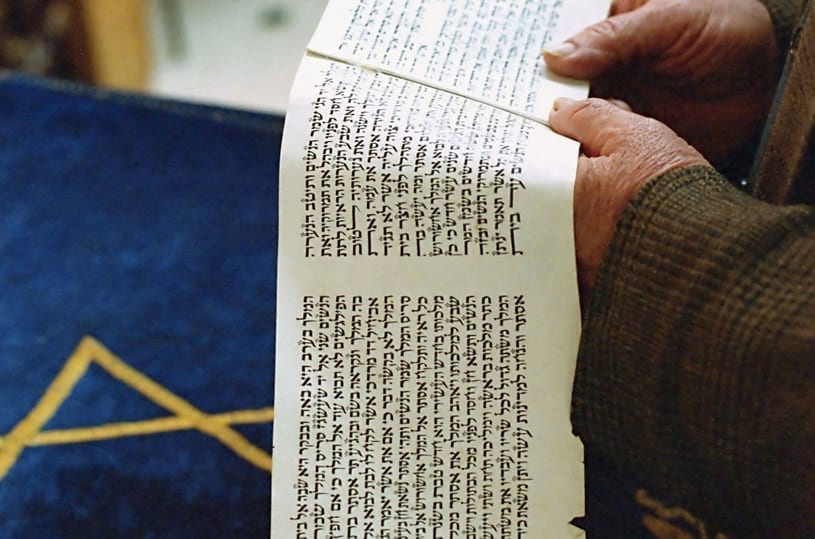Lior, 34, was a regular, healthy person. He was married, had three children worked for a living and lived a peaceful life in Kiryat Shmuel. But three years ago, the clock in Lior’s home suddenly stopped. His kidneys stopped functioning.
The kidneys’ function is to filter the toxins in the blood, and if they can’t, the person has to undergo a treatment called dialysis. The treatment is, to say the least, unpleasant. A machine has to pump the blood out of the body, clean it, and return it to the body. The treatment has to be done several times a week, and each time it lasts several exhausting hours. Needless to say, dialysis does not allow a normal life, and it affects one’s work, livelihood and daily life. In desperation, Lior turned to the Gift of Life association, and had to wait patiently for a kidney donor, from among another 700 (!) individuals who are waiting in line each year.
A Birthday Gift
“I arrived in the evening. They had a surprise waiting for me. I arrived on 5 Cheshvan, exactly on my 34th birthday. I could not have gotten a better gift for my birthday. A gift of life,” says Lior, who was discharged from the Rambam hospital with a new kidney.
“You got something good,” Lior was told by his doctor. “Such a thing doesn’t occur every day.”
If a kidney usually takes a few days to function fully, with Lior it was immediate. “Gabi grew a kidney in his body for me for 35 years,” says Lior emotionally, “and now it’s with me. I will watch over it with my life.”
“People think that if you have two kidneys, then if one kidney becomes diseased — at least the other one will still work. This does not meet the test of reality,” Gabi Revivo, 35, married with six in the town of Paduel, tries to allay the worries of people who are reluctant to donate a kidney. “Everyone who needs a transplant will attest that the disease struck both their kidneys at once, and it was a healthy kidney donated to them that saved their lives.”
Gabi is not a stranger to the area of medicine nor to the subject of saving lives. He was a Magen David Adom volunteer in his youth, he served as a military medic in Lebanon, for years he worked as a paramedic, and today he works in the marketing of advanced medical devices. And yet, he had an old dream that he felt he had to fulfill …
What brought you to donating your kidney?
“For many years I wanted to do it. My wife says I wanted to do it even before our wedding. Maybe 15 years. In the past two years, I heard about the Gift of Life organization, I heard about various people who were suffering and I was touched. In the last year I got the green light from my wife and decided to go for it. I wanted to bring the idea to fruition. Eight months ago, there was a incident involving someone close to me, and this pushed me to finally get moving.
“But there is no doubt that it is also related to my MDA work with patients. When you see people suffering all the time, when you are in daily contact with them and want to relieve their suffering, there are things you realize you can do. There are diseases that do not have a medical solution. Here, in the case of a kidney transplant, you give a kidney and the matter is resolved in the simplest way. For 2-3 weeks you are out of action, but then with G-d’s help, everything goes back to normal.”
Is there any risk involved in donating a kidney?
“It’s all a matter of how you define risk. If a son would need a kidney, every father would happily give him a kidney. The same applies to a child donating a kidney to a parent, as was the case with Avraham Ravitz. His children quarreled to see who would give a kidney to him. People have to understand that in terms of risk, although there is general anesthesia and surgery, the risk is extremely low. you have to remember that even when a woman gives birth, there is a certain risk to her life.
“I had a discussion with someone in my town and I told him, ‘You risked your wife’s life when she was in childbirth. Women may G-d forbid die during a Caesarian section. The thing is that people want their own child, they feel especially connected to their own child. The fact that they may have a Caesarean section won’t prevent women from having more children.
“It’s the same in our case. The operation is relatively simple, and the fear is dwarfed by the magnanimous act. And even if there are complications, it will have an effect only during the first few weeks, but not more. And even if we assume the worst case scenario, that the donor suddenly will himself need an organ donation, the Ministry of Health puts donors who need organ transplants first in line, to compensate them for their donations.”
“Dad, are we so selfish?”
Gabi’s family, of course, wasn’t indifferent. “My wife supported it throughout,” Gabi relates. “She was a little worried at first about the surgery, but once she understood that the process was simple, and that it is an act of mutual responsibility — that overcame everything. The children were terrific. My son said, ‘Dad, are we so selfish? If only 700 people would be donors every year — there would be no people who need a kidney.’ I showed a video to my daughter, and she said to me, ‘Dad, this is a great deed. I always thought that only women bring life to the world. Now I understand that men can too.’ When the children arrived at the hospital, they were very excited.”
Did anyone try to dissuade you from the idea?
“Some said that maybe I wasn’t acting responsibly, because I have six children. I respect their opinion and concerns. Nevertheless, because of my knowledge of the subject, I was sure that there was nothing to be concerned about. My wife was afraid that I would have a hard time with the pain, but I told her it would be all right. And it really was.”
How did you decide to whom to donate the kidney?
“As soon as you are capable of donating, they find you a ‘match’. They have to find someone who matches your blood type. They check that your kidneys are working, and you do blood tests to see that everything is OK. If there is a problem, even a small one, they will not take a risk.”
Describe the moments of your first encounter with Lior and his family.
“It’s hard to describe it. It’s a rare experience. His father saw me in the distance, and asked me: ‘Are you the kidney donor?’ I asked him, ‘How do you know?’ He said, ‘We were waiting for you.’ He and his wife were full of gratitude.”
And the meeting after the surgery?
“It was a wonderful feeling to see that all went well. To realize that Lior will not need dialysis anymore, and that everything in his and his family’s life will from now on, G-d willing, change dramatically. It was my privilege.”
A word for those who are too afraid to follow in your footsteps?
“You have to explain to them that there is nothing to fear. It is a simple act which enables them to save lives, and to allow people like you and me to live. It is an act of gratitude, a way of saying to G-d, ‘You have given me good, I will give good to others too.”
Rabbi Ovadia Yosef’s ruling: It is permissible and even a virtuous deed for a person to donate one of his kidneys to save another Jew whose life is in danger because of kidney disease. This virtuous deed is deserving to provide him protection like a thousand shields. In any event, it is clear that he should not undertake such a move unless he receives the approval of specialists. One who carries out a worthy deed will never suffer bad from it.




